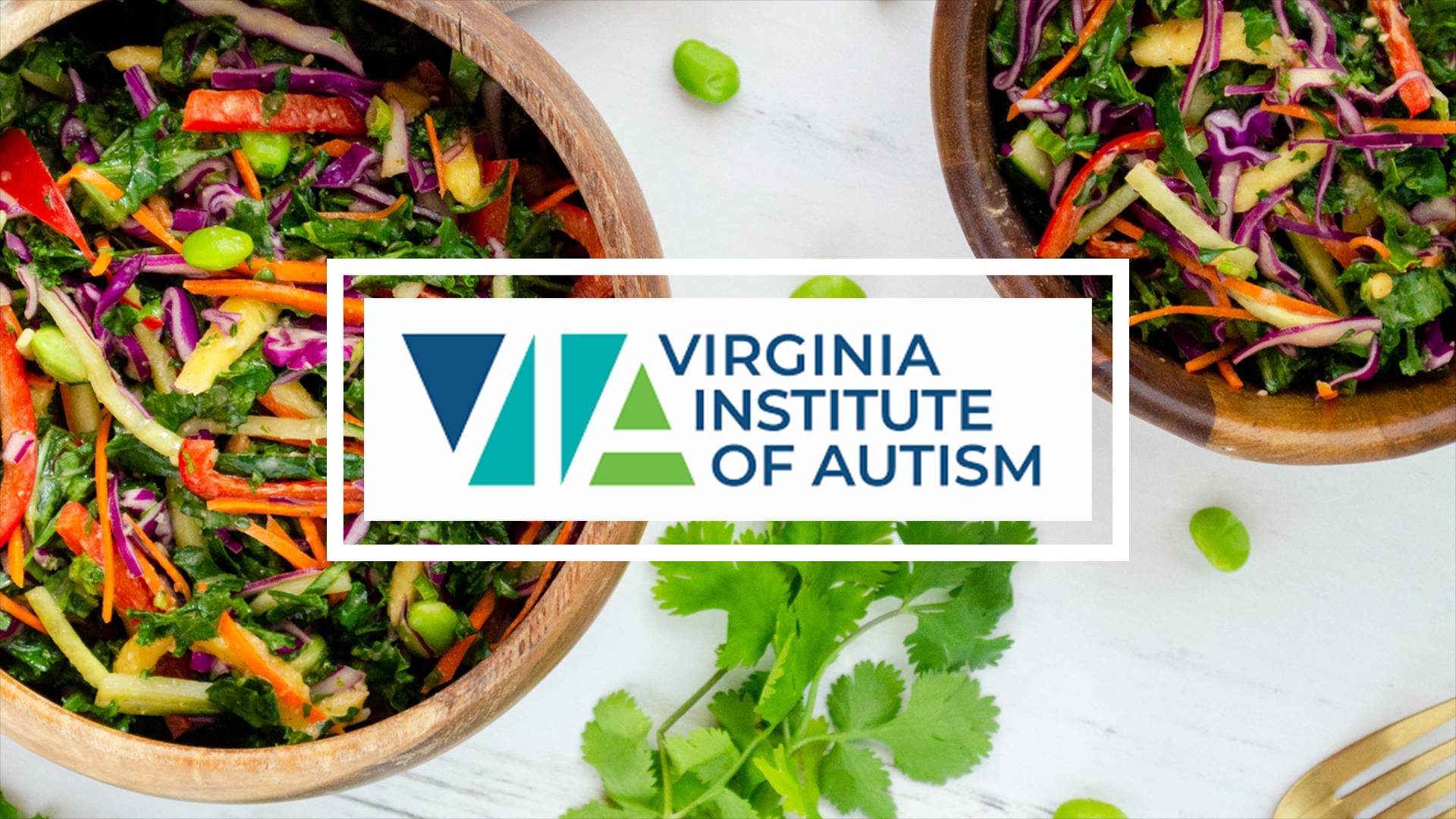School Nurse Combines Service to Children with Autism with Love of Plant-Based Eating

Meet newly licensed Food for Life instructor Stephanie Molina, who is also the school nurse at the Virginia Institute for Autism (VIA) in Charlottesville, where she is busy mixing her role as a health care provider with her love of whole food, plant-based eating.
VIA helps people overcome challenges of autism through education, outreach, outpatient behavioral services, and adult services. The day school offers kindergarten through 12th grade education; Stephanie serves children of all ages.
Q. Can you tell us about your role at VIA and the students you serve?
A. When a school deems that it can’t provide the service a child needs in a public school, the child’s parent may apply through the county to be admitted to VIA, and we have students from all over the state, some who travel an hour by bus. We also see children with all levels of ability, some who are nonverbal. We use programs on iPad and picture books to help with communication.
Q. Are there health issues particular to the student population you serve?
A. In my role as school nurse, I help lots of students with autism who have other diagnoses, a common one being chronic constipation. Often, our students have preferred foods and they are not typically the healthiest options, and that is likely a contributing factor.
I work with teachers and the students’ families. For some students, two meals each day are provided by the local school district. They are not always the healthiest options, and we are a year-round school, so we are trying to find out what we can do here to add healthier foods. One classroom implemented smoothies as snacks for the kids, and they really like that. We have tried overnight oats. Mandarin oranges are a big hit.
But constipation is a problem for lots of children, not just those we serve. It can be difficult to tell the exact cause (i.e., medication, diet, hydration, etc.). We will be working on making small tweaks to foods we offer and introducing new foods to students.
Q. In what other ways are you introducing new, healthier foods?
A. We also give the students opportunities to earn reward tokens. When they earn a preset amount, they receive a preferred item or event, like playing ball or taking a break. Sometimes the preferred item is food. When given the choice, they will choose Doritos, for example. So we are taking a step back and seeing where we can substitute new food choices to broaden their horizons.
We definitely have roadblocks along the way, but it is a matter of opening them up to new things. We have a garden and now that it is spring, some of the instructors will be working on that. The students will be involved in watering and weeding. We feel a responsibility to make sure the students are receiving healthy food options, and at least here and with the help of Food for Life, they will.
Q. Why did you want to become a Food for Life instructor?
A. I have been a vegetarian since high school, and vegan since 2009, and have followed Drs. Neal Barnard and Michael Gregor and other experts. When I found out about Food for Life, I was very interested. Then COVID happened. But Food for Life offered virtual instructor training during the pandemic, so I did that last winter. I would like to offer Food for Life classes at VIA for parents and siblings of our students, some of our adult learners, and our staff. I have already heard from people who are interested, and I will teach our first class around Earth Day later this month.
I recently sent a survey to parents and teachers to find out what they would like to learn and to gather information about which fruits and vegetables our students already favor. I’ve asked parents which foods they would like to see their children try. We’ve received great feedback! Another benefit to these classes is community. We used to have support groups, meet-ups for families, and field trips. COVID put a lot of that on hold but families will have the opportunity to meet with other families and learn new bits of information about nutrition, and I am excited to have the support of families like them. I am hopeful that the classes will also help parents/families at home who are interested in learning more about nutrition and diabetes, heart ailments, or other health challenges.
Q. What are your plans after Earth Day?
A. My goal is to offer a Food for Life class once each month or at least once each quarter for staff and families.
I want families and our instructors to feel supported and to know that even small changes are meaningful. If a student eats an apple each day and he didn’t before, that’s progress. I would like Food for Life to bring us together, teach about good nutrition, and that eating healthfully can also be cost-saving.
To find out more about what is happening at the Virginia Institute for Autism, visit Viacenters.org







